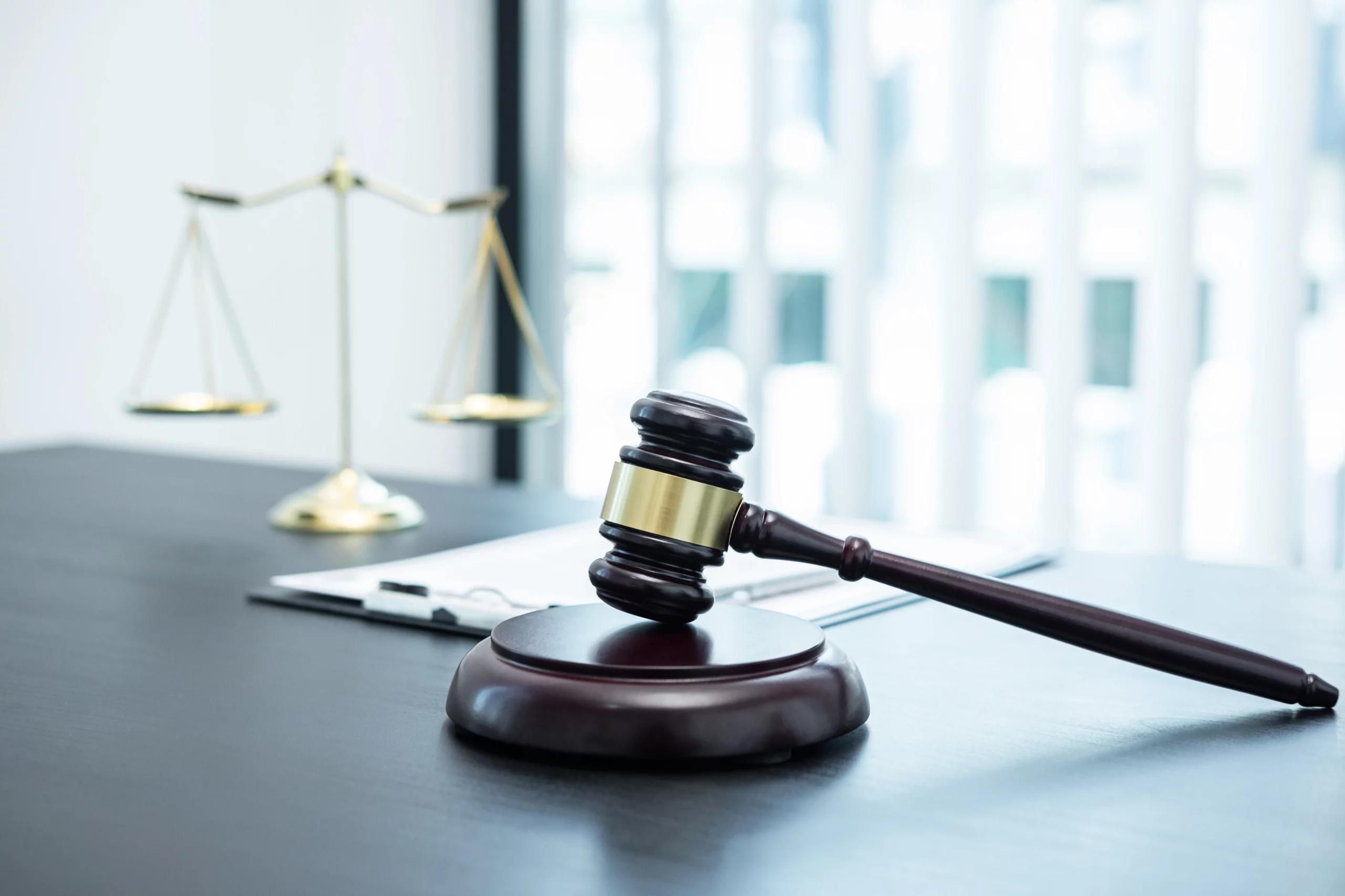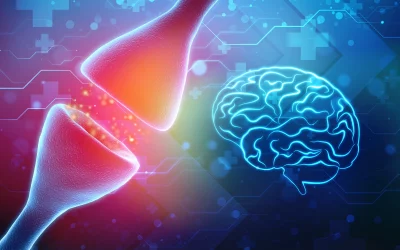A traumatic brain injury, often known as a TBI, is one of the most serious injuries you may get. Permanent impairment, loss of function, or personality changes may result from the damage, although the consequences might sometimes be minor and undetectable.
If you’ve been in an accident and suffered brain damage, you may be facing an unknown financial future and a lot of worries. It’s critical to pursue brain injury compensation as soon as possible to protect your health and financial stability, but how much is your damage worth?
A brain injury claim in Colorado Springs might be worth a few thousand dollars or several million dollars, depending on the degree of the impairment, the effect on your life, and a variety of other variables. Here’s everything you need to know about Colorado head injury settlement amounts and what to anticipate.
WHAT IS THE AVERAGE TRAUMATIC BRAIN INJURY SETTLEMENT?
A settlement or a judgement are the two options for recovering compensation for brain damage in Colorado. A settlement in a personal injury lawsuit occurs when both parties agree to resolve the dispute outside of court. If a settlement cannot be reached, the dispute may be taken to court and decided by a jury. If the jury rules in favour of the plaintiff, the defendant may be ordered to pay damages.
While jury judgments are public information, out-of-court injury settlements are not. As a result, determining an average severe or moderate traumatic brain injury settlement is difficult.
According to Jury Judgment Research, the average personal injury verdict in Colorado in 2020 was
$1.81 million, whereas the median damage award was $114,000, according to Jury Verdict Research. The disparity is attributable to a few very high-value rulings that affect the average. The median is a better representation of the average personal injury verdict in Colorado.
In Colorado, the average judgement for a brain injury was $1,595,000. In comparison, the national verdict for brain damage was $1,400,000.
This isn’t the whole tale. Jury judgments are often, but not always, larger than settlement sums. During settlement talks, the defendant and their lawyer must assess the likelihood of a jury siding with you and the amount of money they would award. In return for a possibly greater jury judgement, it may take considerably longer – perhaps years – to obtain compensation, and the costs of a trial will be higher.
THE SEVERITY OF BRAIN INJURIES AND THE AVERAGE SETTLEMENT
AMOUNTS
Because the value of your case must consider your present and future medical bills, pain and suffering, disability, and other losses, head injury settlement amounts tend to increase as the severity of the damage increases. Settlements for concussions and mild traumatic brain injuries might approach $1,000,000. When the wounded victim requires substantial life care and medical treatment, instances involving severe Traumatic Brain Injury (TBI) might surpass
$10,000,000.
Keep the following in mind when calculating the typical brain injury case settlement value: each case is fact-specific, and the value is determined by a variety of factors such as the mechanism of injury, the type of injuries sustained, the care received, the future care required (if any), the damages unique to each case, the makeup of the “individual/plaintiff” bringing the case, the venue, and so on.
Furthermore, although concussion settlements are often lower than severe TBI damages, the severity of the injury does not affect the worth of your case. The sum of your losses, the circumstances, and any long-term repercussions are all taken into account, in addition to the severity of the injury.
Depending on the circumstances, even a minor TBI case might be worth millions. Here’s an illustration of how two persons suffering from a minor traumatic brain injury following a car accident vary.
Victim A has short-term headaches and memory loss, necessitating a week off work, but no long- term effects. The majority of their losses are medical expenses and missed pay.
Victim B suffers a similar injury but develops post-concussion syndrome (PCS), which is characterised by symptoms that continue much longer than they should. Victim B has classic PCS symptoms such as noise and light sensitivity, dizziness, headaches, memory issues, and narcolepsy, making it hard for them to return to work or keep a job. The case of Victim B would very certainly be worth a lot more.
Their post-concussion syndrome settlement value would include: Long-term medical treatment.
MISSED WAGES. LIMITED EARNING CAPACITY. LOWER QUALITY OF LIFE.
This demonstrates why knowing the average payment for a concussion caused by a car accident is useless in estimating the value of your case.
Settlements & Verdicts for Brain Injuries We’ve Achieved
The following judgments and settlements for brain injuries obtained by Warrior Car Accident Lawyers may assist you in determining the potential worth of your case. Always keep in mind that no two brain damage cases are identical. The worth of your case will be determined by several criteria that are specific to you and your situation.
$8 million for a faulty device (hydraulic pump) resulted in severe brain damage and epilepsy.
$2 million for a medical negligence lawsuit in which a botched pituitary tumour operation led to brain damage and irreversible blindness.
$5 million for failing to care for a dependent adult who had suffered significant brain damage due
to a prescription medication overdose.
$600,000 for elder negligence after a high-risk patient was left unattended and fell, resulting in brain damage and lasting cognitive impairment.
What Is the Value of a Brain Injury Case? | Factors Affecting the Value of a Brain Injury Claim As you can see, compensation for brain injuries in Colorado varies greatly. This is why each
traumatic brain injury case must be assessed separately. What factors go into determining the worth of a brain damage claim? Here’s a closer look at the elements that influence the value of a traumatic brain injury or concussion settlement.
EXPENSES FOR A TRAUMATIC BRAIN INJURY’S MEDICAL CARE
Traumatic brain injury is thought to be a disease process rather than a single accident. This indicates that those with a TBI may experience long-term repercussions comparable to those of a chronic condition, such as increased medical bills.
A brain injury may cost a lot of money in medical bills. The cost of caring for someone with a serious traumatic brain injury is estimated to be anywhere from $600,000 and $1.875 million. The Colorado- based Centre for Neuro Skills predicts that a mild TBI would cost $85,000 throughout a lifetime, while a major TBI will cost $900,000.
The medical treatment makes up a major portion of the typical traumatic brain injury settlement, although it varies based on the damage, rehabilitation, and other factors. You are eligible for compensation for current and future medical expenses, including:
surgery hospitalisation
acute hospital-based rehab (up to $8,000 per day)
Residential rehabilitation in a subacute or post-acute setting (up to $2,500 per day) Outpatient (up to $1,000 per day) treatment
Nursing care
Assisting with daily activities
Suicide intervention Counseling Prescription medicines
Physical therapists, speech therapists, occupational therapists, neuropsychologists, social workers, rehabilitation nurses, and physiatrists may be part of the treatment team.
According to the Brain Injury Association of America, inpatient rehabilitation treatment for a traumatic brain injury may cost $46,000 on average ($1,600 per day). The Centre for Neuro Skills, on the other hand, discovered that intensive rehabilitation might save $1.5 million in TBI healthcare expenses throughout a lifetime.
DISABILITY & LOSS OF EARNINGS FOLLOWING A TBI,
In the United States, traumatic brain injury (TBI) is the main cause of disability. Approximately 60%
of average persons with brain injuries are jobless two years following their accident. According to the Centers for Disease Control and Prevention (CDC), 5.3 million persons in the United States have a handicap caused by a traumatic brain injury.
You are entitled to compensation for your lost income and potential lost earnings if you suffer a TBI due to someone else’s carelessness. If you have to take a long period off or are unable to return to work, this may account for a considerable portion of the value of your case.
While calculating the value of your lost pay is simple, assessing the value of your lost earning ability might be difficult. This may need taking into account:
Your age and life expectancy Your profession.
Professional credentials and skills Earning capacity post-injury
Workplace perks such as pension contributions and health insurance
In a case involving a brain injury, there may be additional monetary damages.
Head injury settlements include compensation for any financial damages you have sustained in addition to your lost pay, decreased earning ability, and medical expenses.
Vocational training
Home or car modifications
Domestic services such as housekeeping while you recuperate or due to a long-term impairment TBI Non-economic Losses & Pain and Suffering
Settlements for traumatic brain injuries include economic and non-economic losses, such as lost wages and medical bills. A crucial issue in assessing equitable brain injury compensation is how brain damage affects everyday living.
Traumatic brain injuries result in not only physical but also mental, emotional, and cognitive damage. You have the right to seek compensation for these non-monetary losses.
Pain and suffering are non-economic damages linked with a brain injury. Mental suffering
Emotional sorrow Loss of pleasure of life Loss of friendship Loss of consortium
Your injury lawyer will assist you in documenting and quantifying these losses to provide a complete picture of how your injury will impact you.
Non-economic losses following a brain injury, like economic damages, vary greatly from one individual to the next. To calculate your losses, multiply your economic losses by a ratio of 1.5 to 5, depending on the severity of your injury. This will be utilised as a starting point for negotiating a reasonable concussion compensation for an attack, a fall, or a car accident.
A skilled brain injury lawyer in Colorado Springs will fight for compensation for both the apparent and unseen impacts of a TBI, as well as the additional dangers you face. A reasonable settlement considers that brain damage is more like a chronic condition than an acute accident, with very significant long-term dangers. Following a brain injury, you’re more likely to:
Dementia. After a mild TBI, the chance of dementia is 2.3 times higher, and after a severe TBI, the risk is 4.5 times higher. Even decades after brain damage, there remains a significant association between the injury and dementia.
Affective disorders. There is compelling evidence that brain damage may result in mental disease as well as intellectual and mental difficulties. TBI may raise the risk of mental problems by up to 400%. This encompasses bipolar illness, schizophrenia, depression, and post-traumatic stress disorder (PTSD). Disturbance of neurotransmitters in the afflicted area and inflammation in the brain are likely to cause this risk.
Migraines and headaches regularly. Within a TBI, headaches are fairly frequent and usually go away after a year. On the other hand, one-third of TBI survivors suffer from persistent migraines and headaches for more than a year.
Abuse of drugs and alcohol. TBI raises the likelihood of having a drug use problem, while addiction or substance abuse is also a risk factor for TBI.
Increased chance of more concussions, as well as the potentially deadly consequence of numerous concussions.
OTHER FACTORS AFFECTING A BRAIN INJURY CASE’S VALUE
What is the value of a brain injury lawsuit in Colorado? It takes more than summing up your cash losses and placing a monetary figure on your losses to determine the worth of your case. There are a few other variables to consider.
HAVE YOU ATTAINED YOUR MMI (MAXIMUM MEDICAL IMPROVEMENT)?
This occurs when your doctor believes that more therapy will not improve your condition. However, it does not imply that you have fully recovered or that your condition cannot improve. Before negotiating even modest traumatic brain injury settlements, you should contact MMI to ensure that you understand your prognosis, expected future medical bills, and capacity to return to work.
If you settle before reaching MMI, you risk losing money if your condition turns out to be worse than you thought.
IS THERE A CLEAR LINE OF RESPONSIBILITY IN YOUR CASE?
The better your proof and the more clear responsibility is in your case, the sooner your case will likely settle and the more money you will normally obtain when selecting when and how much to settle; insurance companies analyse how they would do in court against a jury. If the defendant is clearly at fault, they know they have little, if any, the chance of succeeding in court. Complex cases not only take longer to resolve, but they often incur more litigation expenses, lowering your compensation.
DO YOU SHARE RESPONSIBILITY FOR YOUR ACCIDENT?
You would be assessed a share of the blame if you contributed to the accident. Colorado has a pure comparative negligence system, which permits you to get compensation even if you were partly at fault, but your claim will be reduced based on your percentage of the blame.
If you sustain $50,000 in damages but are determined to be 30% at blame for the accident, you may only receive $35,000 (minus $15,000 for being 30% at fault). To minimise their responsibility, insurance firms may attempt to transfer as much blame as possible to you.
ARE YOU ABLE TO GET PUNITIVE DAMAGES?
In Colorado, only a small percentage of personal injury lawsuits are eligible for punitive damages. A jury may impose punitive damages in addition to compensatory damages if you can establish the defendant’s “malice, oppression, or fraud” caused your brain injury. Punitive damages are usually awarded in the circumstances involving willful injury, excessive irresponsibility, or a disregard for others’ rights and safety.
Punitive or exemplary damages cannot be awarded in a settlement; only a jury may punish the defendant with these penalties. This is one reason why a Colorado Springs brain injury attorney would advise going to trial in certain circumstances.
WHAT ARE YOUR OPTIONS FOR REMUNERATION?
Recovering a million-dollar jury judgement against a defendant is useless if the defendant lacks insurance, assets, or the financial means to pay the judgement. Your attorney will carefully consider all options for obtaining compensation for you. You may be able to obtain compensation from the following sources:
Commercial liability insurance Car insurance
Homeowner’s insurance is a kind of insurance that protects the owner of Personal umbrella insurance
Workers’ compensation insurance
PIP (Personal Injury Protection) coverage Medical Payments coverage
The amount you may collect after an accident will be limited by the coverage you have. If the defendant’s insurance does not completely pay you, you may be able to recover damages through personal insurance plans and/or seek their assets.
Are there any other circumstances that might impact your compensation for a brain injury?
Some variables, such as witnesses and their credibility, might enhance or reduce the amount of compensation you may get.
Whether the insurance company acts in good faith and makes a fair offer The quantity of medical evidence you can provide
How fast you seek medical assistance Whether the jury is sympathetic
The number of defendants since this provides you more options for compensation
HOW AFTER A TRAUMATIC BRAIN INJURY, WARRIOR CAR ACCIDENT LAWYERS CAN ASSIST YOU.
It’s critical to get medical attention as soon as possible after a brain injury. The next step is to contact a skilled brain injury lawyer in Colorado Springs to guarantee that you get just compensation for your losses.
We have considerable expertise defending individuals who have suffered brain injuries due to falls, nursing facility negligence, car accidents, and assault at Warrior Car Accident Lawyers. We work closely with reputable brain injury specialists to ensure that you are properly diagnosed and treated, as well as to offer expert evidence on the long-term effects of your damage.
Our legal company is situated in Colorado Springs, but we represent anyone who has suffered a brain injury everywhere in Colorado. To book a free consultation to explore your case and how much your brain damage claim may be worth, contact a Colorado Springs brain injury attorney now.
DAMAGES OCCURRING AS A RESULT OF MILD TRAUMATIC BRAIN INJURIES
Injuries that aren’t visible on a radiograph
For the sake of this essay, we’ll assume that the brain damage in issue isn’t caused by a lesion that can be seen on a CAT scan, MRI, or another radiographic instrument. Rather, we’re dealing with brain injuries that have been identified by neuropsychological testing as well as physical and neuropsychological diagnostic signs and symptoms.
ARGUMENTS IN SEXUAL ABUSE CASES HAVE SIMILARITIES
Many of the same damaging themes that work in sexual abuse cases (see above) will work in traumatic brain injury situations. The loss of peace of mind and loss of hope arguments, in particular, may be highly compelling in the proper instance.
THE PLAINTIFF IS AWARE OF WORSENING IN MINOR HEAD INJURY SITUATIONS.
In a “mild” traumatic brain injury case, you may claim that plaintiff is worse off with a minor traumatic brain injury than a serious head injury because, unlike someone in a vegetative condition, the plaintiff is fully aware of his or her traumatically produced inadequacies.
In and of itself, the loss of peace of mind that comes with knowing that your brain function has been injured is terrible damage. We all take pleasure in our brains, capacity to think, and ability to solve problems. When such talents are injured due to someone else’s wrongdoing, our self- esteem and feeling of security automatically suffer. This heightens our tension and panic, as well as unnecessary ruminating and a feeling of failure.
HUMAN FUNCTION IS CENTRED ON THE BRAIN.
When arguing damages in a traumatic brain injury case, we must first explain to the jury the
significance of the brain to human functioning and how even a little alteration in brain function may drastically impact a person’s life. Furthermore, we must assist the jurors in comprehending the link between human cognition, emotion, and physicality.
THE HUMAN BRAIN’S IRREPLACEABILITY: THEY DON’T MAKE ARTIFICIAL BRAINS
A consideration of the human brain’s uniqueness and specialness should be included in the closing argument. Even the most complex and costly computers can’t come close to mimicking the human brain. The same reasoning used in psychological damage cases may be utilised in brain injury cases: they build prosthetic limbs but not artificial brains. When a person’s brain function has been gone for more than 18 months, it is unlikely to return and cannot be restored.
EVEN LITTLE CHANGES IN BRAIN FUNCTION MAY HAVE A SIGNIFICANT IMPACT ON A PERSON’S LIFE.
In the instance of a person who has lost ten per cent of their brain function or IQ, it may be stated that ten per cent is frequently the difference between an outstanding and an ordinary human being. Jonas Salk would not have achieved the huge triumphs that benefitted mankind to such a degree if he had 10 per cent less brain function.
OUR BRAIN’S INDIVIDUALITY
The brain’s distinctiveness should be emphasised in conclusion. We would be nothing and unable to achieve anything if we did not have a brain. We were born with a brain that enabled us to do, experience and appreciate various aspects of life. When our brains are damaged, our lives are irrevocably changed, and no one has the authority to do so.
When our brain is injured, the brain cells cannot be replenished, and brain function is usually lost. As a result, we will never be the same person, unable to stay on track, accomplish and experience the same things, or enjoy life in the same manner.
Defending the Effects of Brain Injury on Physical, Emotional, and Cognitive Functioning When someone’s brain is injured, it affects significantly more than just the brain. Brain damage
affects every aspect of a person’s physical, cognitive, and emotional functioning. A brain injury may result in cognitive impairment, such as difficulties in thinking, processing, and focusing. However, this cognitive damage does not occur in isolation; it commonly leads to physical injuries such as headaches when the individual strives to focus.
Because the individual cannot focus and think clearly, it may cause emotional injury such as despair and sadness. Despair leads to hopelessness, which may lead to a lack of vigour, which can lead to more cognitive damage, and so on.
“MINOR” BRAIN DAMAGE CAN HAVE “SERIOUS” CONSEQUENCES
There is no such thing as “isolated” brain damage since the brain is so important to our whole functioning. This is also why calling a traumatic brain injury “minor” is a misnomer. Modest traumatic brain damage may have serious ramifications.
If the individual cannot acclimatise to the cognitive insult, minor damage that impacts cognitive performance might lead to major emotional troubles. Mild brain injuries, according to studies, have serious implications such as lifelong impairment, loss of cognitive and emotional functioning, and, in some cases, suicide.
PERSONAL REACTIONS TO TRAUMATIC BRAIN INJURY
Everyone responds differently to a brain injury. The defendant is not entitled to a victim whose post- brain damage symptomatology fits any “standard” since he takes his victim as he finds him. Mild traumatic brain injuries have persistent serious repercussions in a “miserable minority” of patients.
Best Traumatic Brain Injury Law Firm in Colorado Springs
If you emphasise the objective evidence of brain trauma in your argument, explain the uniqueness of the brain to the jury, and help the jury understand that a brain injury affects our overall functioning, you should be able to receive an excellent general damage award with the right set of circumstances and a credible plaintiff.
Jeremy D. Earle, JD, specialises in catastrophic physical and psychological damage claims and wrongful death cases. The company handles cases including catastrophic damage, traumatic brain injury, elder abuse, sexual abuse and harassment, post-traumatic stress disorder, and psychotherapist abuse. For additional information or a free online consultation.












